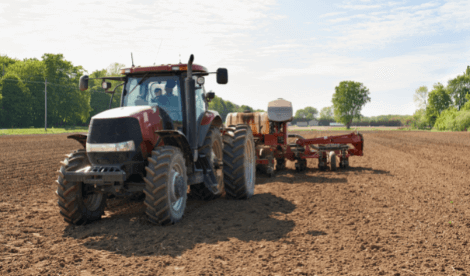Our rural team work alongside a number of vineyards offering advice to those interested in developing a viticulture business, as well as established wine producers looking to expand and export into overseas markets.
Here are just some of our advisory services for the viticulture sector and how we help:
Cashflow and finance
Cashflow management is key for any business and with viticulture it can be vital to the survival of your business for not only new start-ups but also some well-established vineyards. The nature of production, the market, and the product itself can throw up a variety of obstacles from initial set-up costs, the time it takes to get to market and of course the unpredictability of the UK weather.
Although these obstacles are both foreseeable and unforeseeable there are ways in which you can financially plan for them in order to mitigate risk and as a firm Kreston Reeves is here to guide and support you through all aspects, including:-
- Setting up the right business structure
- Choosing the right funding structure
- Utilising tax reliefs that are available such as capital allowances and R&D tax credits
- Utilising cloud technology for your finance function for accurate up-to-date reporting
- Budgets and cash flow forecasts
- Debt management
Added value and marketing
Once a vineyard is set up then producing wine is just one way of bringing an income stream in. Opening a shop to sell direct to the local community and visitors is the next step but there are then plenty of other things that can be done which will improve “margin growth” by enabling visitors to spend more each time they visit. Anything which then becomes a long-term stream of income benefits the vineyard, rather than just relying on one off transactions which can be erratic. Examples might include a wine club, leasing vines, or tourism activities such as glamping!
The other side to be addressed is then how to get people to buy the wine online or visit the site in the first place, plus how to get the wholesale and retail market onboard. What can you do to pull the market to you rather than continually have to push messages out? And how can you use online marketing rather than offline?
We have a team of experts that can help you accelerate your business growth.
VAT and Duty
There has been a significant increase in vineyards and wine production in the UK and demand for UK wine is strong. Whilst this creates great opportunities including the potential export of wine, the question of VAT and excise duty must not be overlooked as it can be a big issue for some businesses to navigate.
Whilst VAT will be applicable at the standard 20%, alcohol production is subject to excise duty and the regulations and licencing requirements can be demanding and result in significant penalties if not followed. HMRC monitor the production of alcohol and related products closely and require meticulous record keeping including licenses for premises, production and sale of wine, depending on your business. You must also submit and pay a monthly duty return and HMRC can inspect premises and records on demand at an excise duty inspection.
Excise duty percentage ranges are dependent on the strength (ABV) of the wine and whether it is still or sparkling. There is also the question of when duty is applicable and whether it is appropriate to hold wine in duty suspension.
Our VAT and Duty team has extensive experience in this area and can provide assistance with excise duty and HMRC’s requirements thus avoiding any potential assessments and or civil penalties for failing to comply.
Capital allowances
Capital allowances remain a legitimate form of tax relief and can generate valuable tax savings for your business. Capital allowances are the tax version of depreciation and are available on expenditure on plant and machinery and even commercial buildings and structures and are available to all businesses.
The UK viticulture industry is growing at an exponential rate, which results in businesses investing in infrastructure and machinery to be able to succeed for which capital allowances are available.
The UK Government is also encouraging businesses to invest in plant and machinery by allowing businesses to receive immediate tax relief in the form of the Annual Investment Allowance (AIA). The AIA allows for a 100% allowance of up to £1million of expenditure on plant and machinery incurred up to 31 December 2020. The allowance is due to drop to £200,000 from 1 January 2021, so timing of the expenditure is key!
For construction or renovation projects post 29 October 2018, a structure and buildings allowance is available for expenditure on non-residential buildings or structures, with relief being received at 3% straight line per annum. Prior to this date, no tax relief was available for the buildings which were used in the business, so this is a huge help for growing businesses.
Research and Development (R&D) tax credits
In recent years, there has been significant investment by UK companies in developing new technologies and growing techniques in the viticulture industry. R&D tax credits are a form of tax incentive available to companies undertaking qualifying R&D activities. The relief is available to UK companies investing in innovation and making advances in science or technology.
If you are investing time and money into innovative growing techniques or technologies, have a breeding programme, applying science or technology to maximise yield or production, or even developing new or improving bottling or packaging techniques, you may be able to claim. Small and medium-sized businesses are able to claim up to 33p for every £1 spent on qualifying R&D activities. Large companies are able to claim up to 11p for every £1 spent on qualifying R&D activities.
International reach
There is real diversity in UK vineyards from large producers farming hundreds of acres of vines to much smaller businesses producing wine from a few acres of land. The UK sparkling wine industry is producing more wine than ever before with volumes expected to continue to increase year on year, with many vineyards exploring new routes to market which include trading internationally and exporting wines.
International sales create a whole host of new challenges which many UK producers are not set up to handle. We have a team of specialists who advise clients on international trade and it is likely they will be increasingly in demand as our vineyard clients search for new markets.
Business structure
Regardless of whether your enterprise is a new standalone venture or an offshoot of an existing business, the structure of the enterprise needs detailed consideration, not only in the context of short and longer-term tax mitigation but from commercial perspectives. Some of the key considerations are listed below:
- Will the new enterprise, or elements of it, expose the owners to additional risks which could be mitigated, or ring-fenced?
- Who will be responsible for managing and developing the new enterprise? Who should be rewarded for the profits generated, and potentially, any capital values created? Are these arrangements fixed or will significant flexibility be required?
- How will the enterprise be financed and over what period? Will significant profits be retained to repay financing and fund future development? Are external investors interested in an equity stake and is this prospect palatable?
- Is the enterprise likely to make tax losses in the initial phase of operation and what potential is there to utilise these losses, prior to generating a profit?
- Does the proposed enterprise provide opportunities to facilitate succession and incentivise the younger generation?
- Is the enterprise the right thing to take on and is the timing right? Do we have the skills, interest and time? Will the project be detrimental to the time available to manage and develop other, potentially critical, business activities?
- Would a joint venture be a practical route to secure working capital, key industry skills or access to restricted or premium markets?
- Is it possible that the enterprise will be sold and that some partitioning could make the business, or parts of it, more attractive?
Banking
The development and operation of most enterprises within the rural sector can be significantly impacted by the quality and knowledge base of a bank manager, and the sector interest and attitude of the respective bank.
Our rural teams have, and continue to, work with key individuals from all the major banks, both at local and area levels, in order to ensure that we are best placed to recommend and facilitate banking relationships.
Our relationships with a broad spectrum of lenders also enables us to help benchmark facilities and, where appropriate, facilitate new introductions with lenders offering facilities more closely aligned with the business strategy.
Longer term rate fixes can also be surprisingly attractive in the light of current interest rates and given that surplus profits during the fix period can often be used to advance infrastructure projects or land acquisitions.
Email Adrian
This site is protected by reCAPTCHA and the Google Privacy Policy and Terms of Service apply.
Mike Dyer ACA MAAT
- Business Advisory and Taxation Partner, and Head of Agriculture
- +44 (0)330 124 1399
- Email Mike
Email Mike
This site is protected by reCAPTCHA and the Google Privacy Policy and Terms of Service apply.
Subscribe to our newsletters
Our complimentary newsletters and event invitations are designed to provide you with regular updates, insight and guidance.
You can unsubscribe from our email communications at any time by emailing [email protected] or by clicking the 'unsubscribe' link found on all our email newsletters and event invitations.
This site is protected by reCAPTCHA and the Google Privacy Policy and Terms of Service apply.















